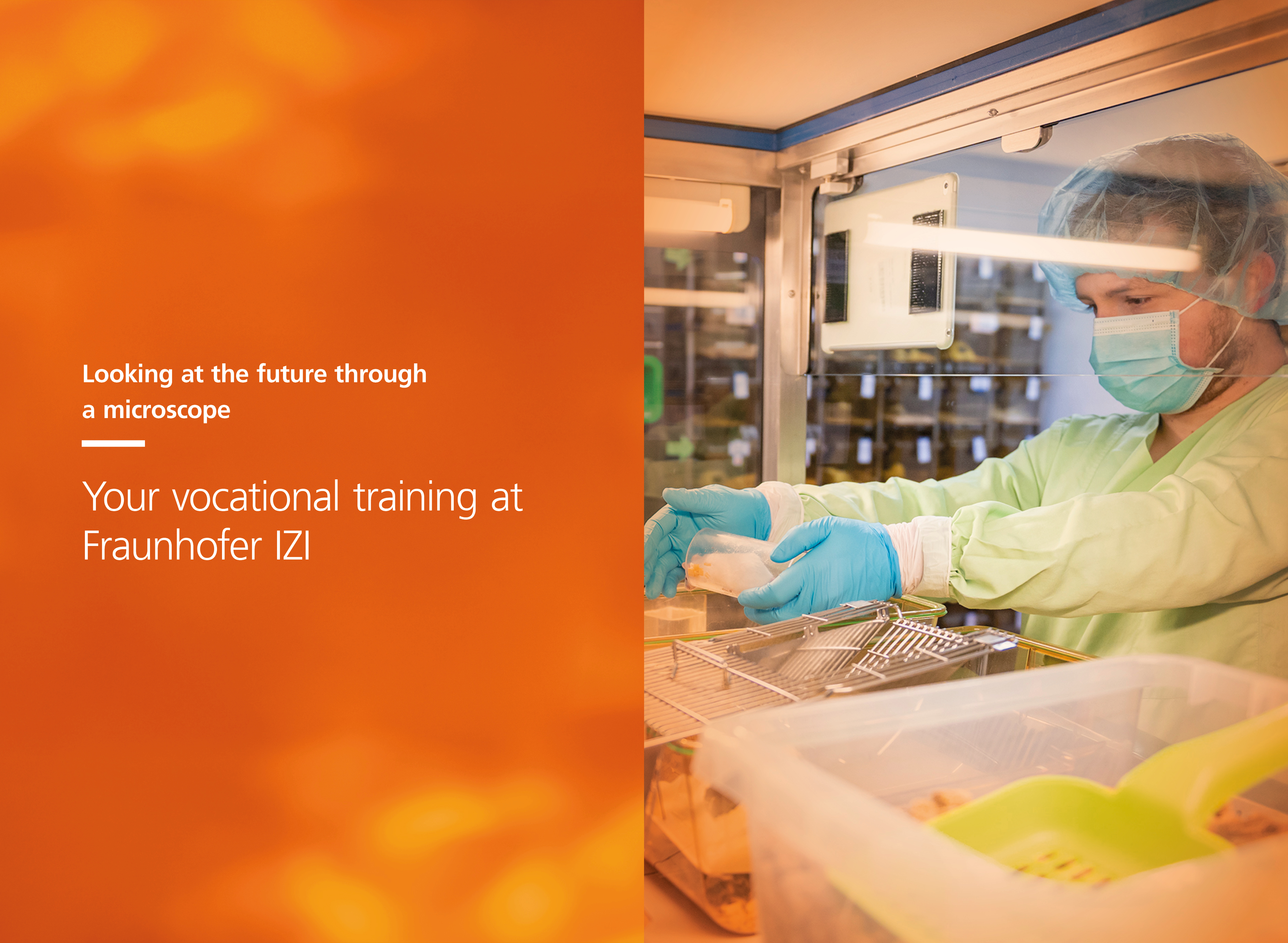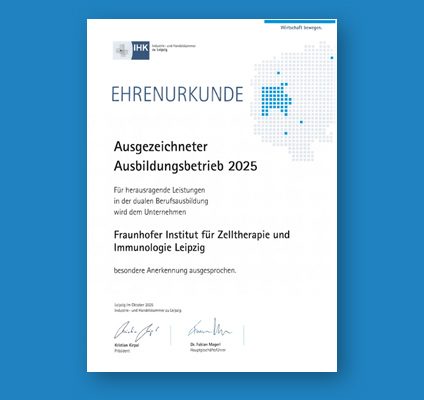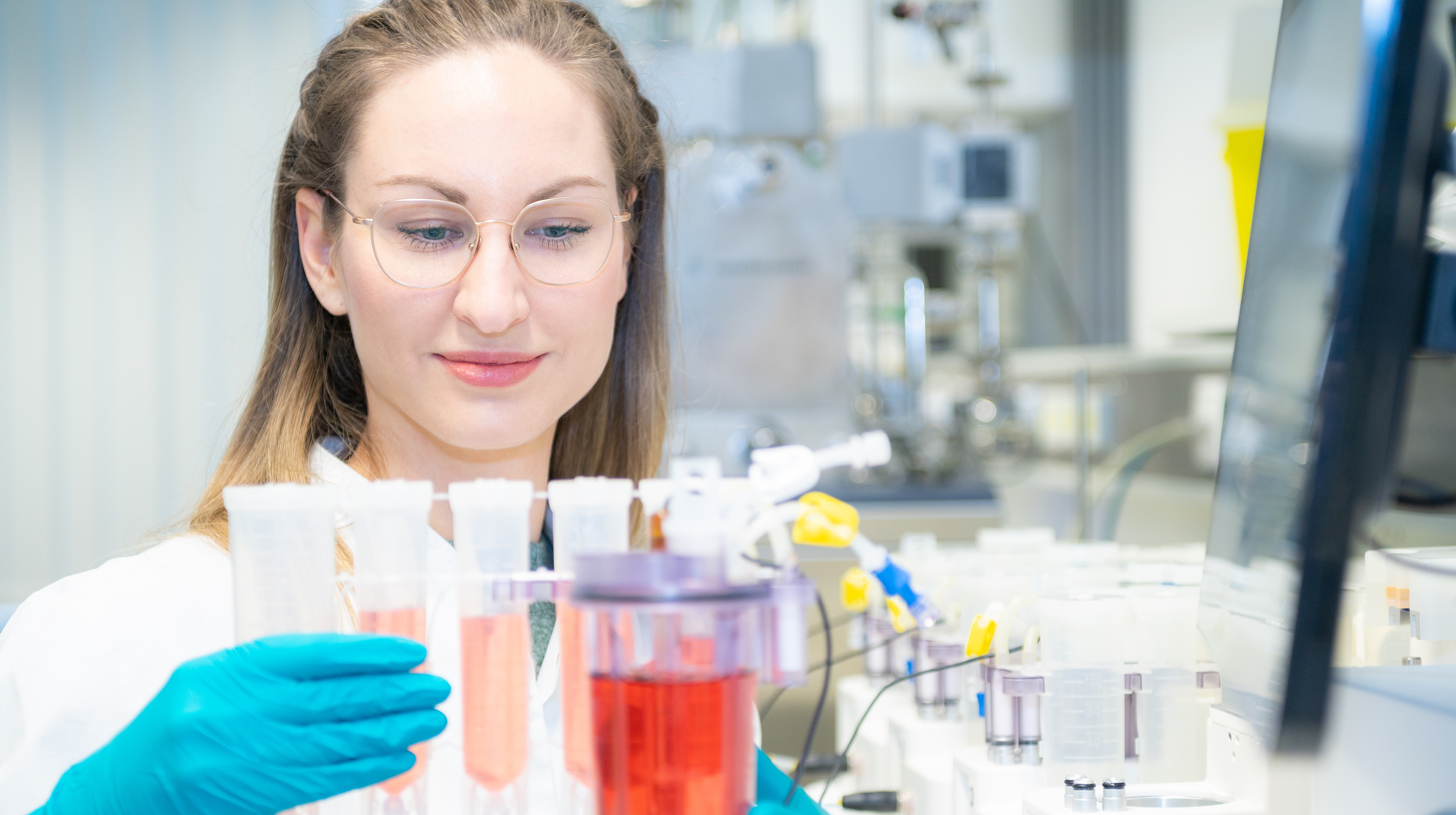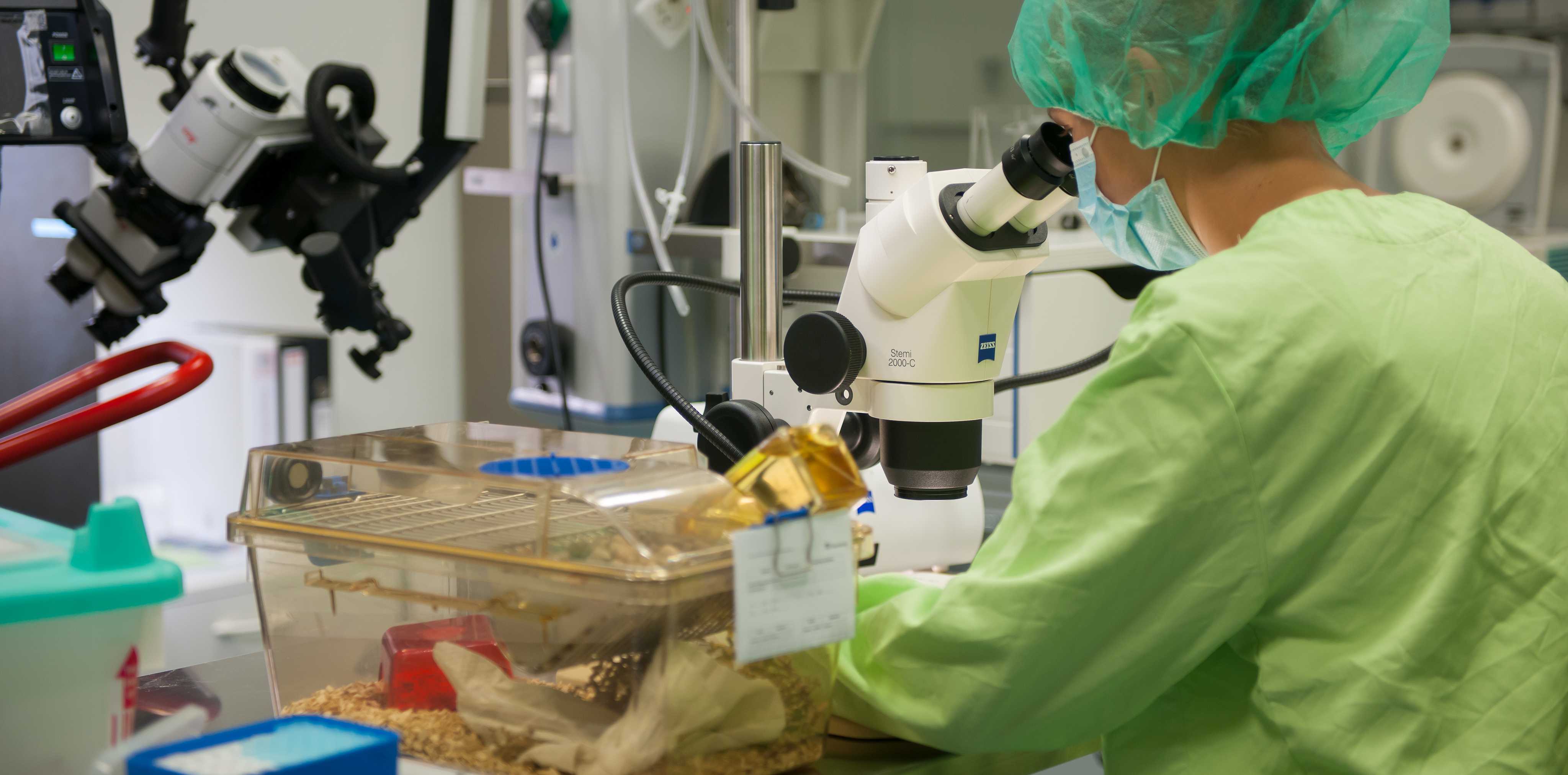Were sciences your favourite subjects in school and do you enjoy working in a lab? You would like to study the microcosm of tiny organisms and promote leading medical research together with our scientists?
During your training to become a biology laboratory technician, you will get to know the different work methods to examine organisms – whether microorganisms, plants, animals or humans. You will help to develop medical products or diagnostic methods and gain insights into nature using various biochemical lab tests.
You will collect biological samples, such as blood, tissue, metabolic products or plant material, to prepare the experiments and then sort, label and store the samples in accordance with the applicable requirements. This is followed by the preparation of the samples for further analysis. If necessary, you will isolate certain elements, such as cells, and breed them in special culture media. Afterwards, you will carry out the planned experiments together with the scientists. In this case, your task might be to mix the prepared cells in chemical solutions and test their reactions. But your research subjects do not only include cells; you will also study DNA, proteins or tissue samples as part of your everyday work. You will examine and compare the structure of viruses or bacteria and study the interactions between drugs and organisms – in a test tube or in animal testing. In this process, you will gradually learn to routinely use various test methods and technical laboratory equipment, such as the electron microscope or the flow cytometer. You will patiently and carefully monitor and record the tests processes, record measured data and evaluate the results. To do that, you will work with computer-assisted analysis tools. Moreover, you will ensure compliance with the safety and hygiene provisions in the lab, you will maintain and calibrate laboratory equipment and ensure that there are always sufficient consumable supplies, such as pipettes or reaction tubes, for the experiments.
Sounds promising? Then put on your lab coat and discover how fascinating and diverse biology is as an occupation.




